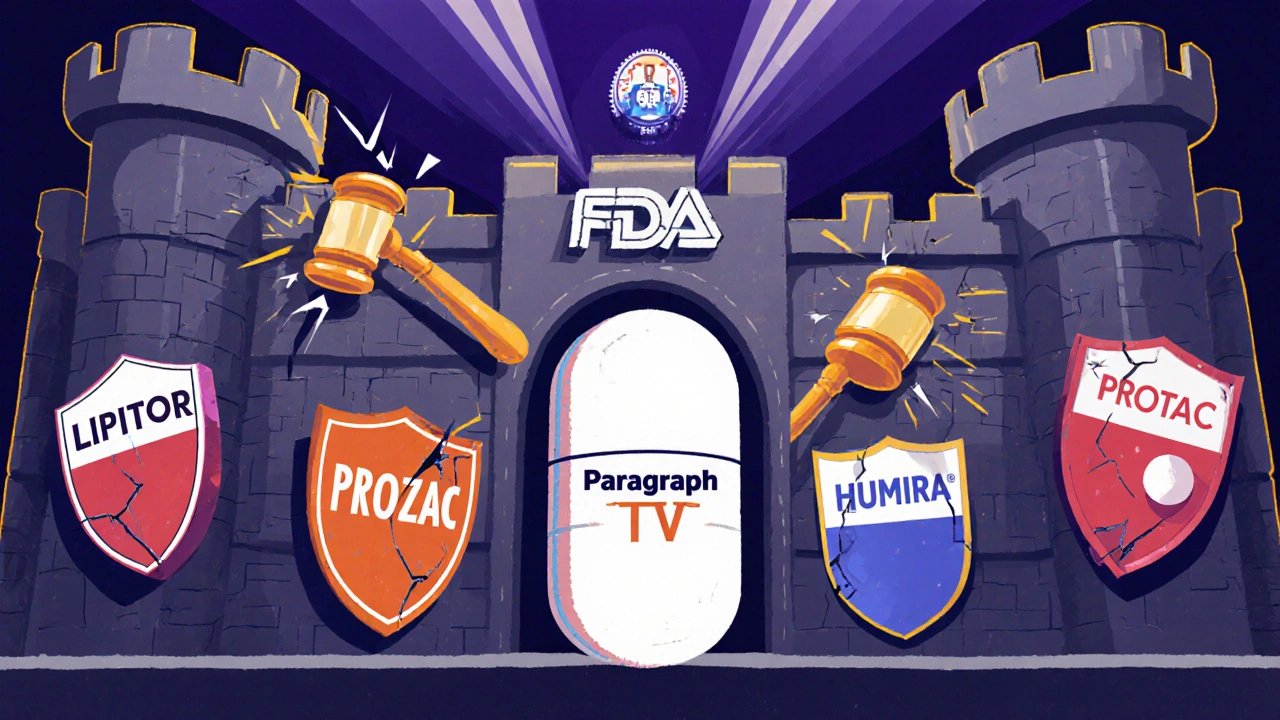Paragraph IV Certification: What It Means for Generic Drugs and Your Wallet
When a generic drug maker files a Paragraph IV certification, a legal notice filed with the FDA to challenge an existing drug patent and claim the drug is either not covered or the patent is invalid. Also known as Paragraph IV notice, it’s the main tool generic manufacturers use to break patent monopolies and get cheaper versions of brand-name drugs to patients faster. This isn’t just paperwork—it’s a direct challenge to the drug company’s exclusive rights, and it’s why you can now buy generic versions of pills like Ativan, Glucophage, or Dorzolamide-Timolol for a fraction of the price.
Here’s how it works: when a brand-name drug gets approved, the manufacturer lists its patents in the FDA’s Orange Book. Any company wanting to make a generic version must file an ANDA, an Abbreviated New Drug Application that proves the generic is bioequivalent to the brand without repeating expensive clinical trials. If they believe the patent is weak, invalid, or doesn’t apply, they file a Paragraph IV certification, a formal declaration that they’re ready to enter the market even if the patent is still active. This triggers a 45-day clock for the brand company to sue for infringement. If they do, the FDA delays generic approval for up to 30 months—unless the generic wins in court. Many do.
Why does this matter to you? Because Paragraph IV certifications are why so many generic drugs hit the market within months of a patent expiring. They’re why you can buy cheap generic Ativan or metformin online without paying brand prices. They’re also why companies like GrantPharmacy.com can offer reliable, FDA-approved alternatives to expensive prescriptions. Without this process, most generics would wait years to launch—keeping prices high and access low.
But it’s not all simple. Some brand companies use tricks like filing multiple patents on minor changes—called "evergreening"—to delay generics. That’s where Paragraph IV becomes even more important: it forces transparency. Courts have to decide if those patents are real innovation or just legal roadblocks. And when courts side with the generic maker, patients win. That’s exactly what happened with several HIV and hepatitis C drugs, where Paragraph IV filings led to faster access to life-saving treatments.
What you’ll find in the posts below are real-world examples of how this system plays out. You’ll see how generic versions of drugs like Voriconazole and Cabergoline became available, how authorized generics differ from standard ones, and why genetic testing now plays a role in whether a generic drug works safely for you. Some posts dive into how patents affect pricing, others show how patients navigate the system to get affordable meds. Together, they paint a full picture: Paragraph IV certification isn’t just a legal term—it’s the reason millions pay less for medicine every day.

How Paragraph IV Patent Challenges Speed Up Generic Drug Entry
- by Colin Edward Egan
- on 17 Nov 2025
Paragraph IV certification under the Hatch-Waxman Act lets generic drug makers challenge brand patents before expiration. Learn how this legal tool drives down drug prices, triggers 30-month litigation stays, and offers 180-day market exclusivity to the first filer.
